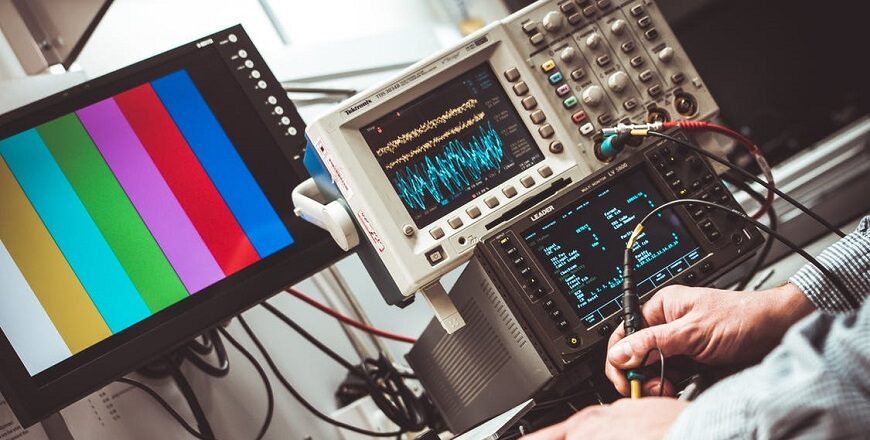UKQC Level 3 Diploma in Electronics Engineering
4
out of 5
4
6 reviews

Description
Diploma in Electronic Engineering programme suits those who are interested in mainstream electronic design and support. This program is designed to provide a balanced curriculum in terms of theoretical knowledge and hands-on practice in learning electronics-related courses. Towards the end of the programme, students are to undergo Industrial Training in gaining real life working experience, and expected to design their own prototype in solving real life problems.
This electronic engineering qualification is designed to give you the underpinning knowledge and specific skills needed to meet the expectations of modern engineering industries and developing technologies.
Core Units
- Electrical and electronic principles
- Electrical installation
- Electronic measurement and testing
- Application of electronic devices and circuits
- Engineering product design and manufacture
- Programmable logic controllers
- Industrial robot technology
Learning Outcome
- Describe the scientific principles that apply to the basic flow of electricity and explain the function of various materials used as conducting, semiconducting, and insulating devices in the construction of standard electrical/electronic circuits.
- Identify the basic tools and test equipment used to construct, troubleshoot, and maintain standard electronic circuits and systems.
- Explain the construction and application of standard circuit configurations and identify the component types and connections used to build functioning electronic circuits.
- Describe the appearance and general operating principles of multiple electronic components and electrical devices such as capacitors, resistors, inductors, semiconductors, integrated circuits (ICs), generators, motors, and transformers.
- Identify and describe the applied electronics principles used to develop circuitry and circuit-systems used for radio, television, fiber optic, laser, computer, and microprocessor devices.
- Communicate effectively in oral, written, and graphical forms.
- Collaborate effectively, individually and as a member of a team.
- Demonstrate a high standard of professional ethics and are cognizant of social concerns as they relate to the practice of engineering technology.
- Appraise their education against the new developments in the field of Electronics and engage in the process of lifelong learning.
Career Opportunities
- Aerospace industry
- Automotive industry
- Defense industry
- Telecom Industry
- Electronics industry
- Fast-moving consumer goods industry
- Materials and metals industry
- Power generation industry
Work placement information
- There is no work placement requirement for this course.
Enrolled:
0 students
Working hours
| Monday | 9:30 am - 6.00 pm |
| Tuesday | 9:30 am - 6.00 pm |
| Wednesday | 9:30 am - 6.00 pm |
| Thursday | 9:30 am - 6.00 pm |
| Friday | 9:30 am - 5.00 pm |
| Saturday | Closed |
| Sunday | Closed |
